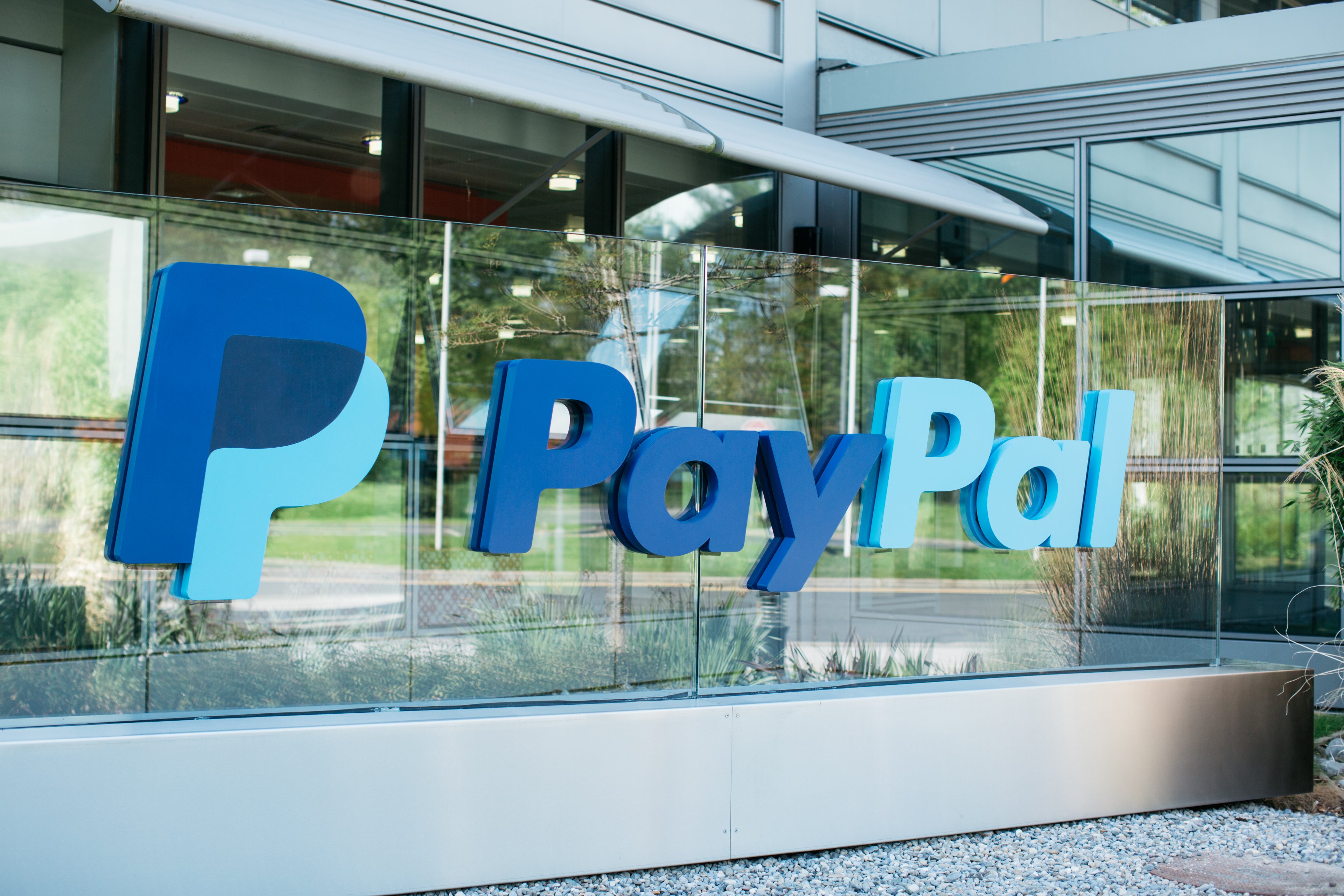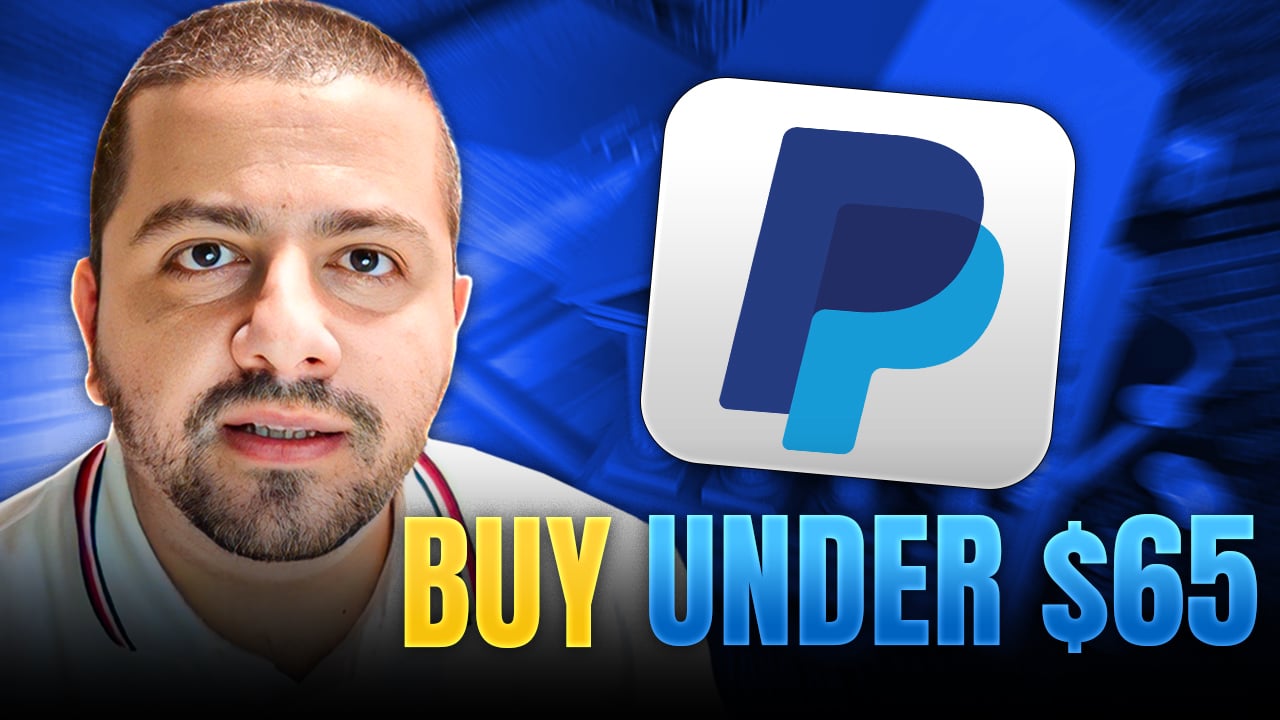Though some industries are being hit hard amid the COVID-19 pandemic, PayPal Holdings (PYPL +0.26%) is a top brand in the e-commerce space that is built to survive the near-term challenges in the economy.
PayPal ended the fourth quarter with $13.6 billion in cash. And when the COVID-19 outbreak was just starting to spread in the U.S., PayPal stated in its updated full-year outlook on Feb. 27 that "business trends remain strong." As a result, management expects only a 1-percentage-point hit to year-over-year revenue growth for the first quarter.
Recently, PayPal received approval to provide access to small business loans through the U.S. Small Business Administration (SBA) Paycheck Protection Program. This makes PayPal one of the first non-bank institutions to get this approval, a sign of the company's financial strength in this distressed economic environment.

PayPal's Venmo office in New York City's West Village. Image source: PayPal Holdings.
All of this means that PayPal should be able to remain on offense with its capital allocation strategy, which involves allocating up to half of its annual free cash flow to buy back stock, and allocating between $1 billion and $3 billion per year for strategic acquisitions like last year's Honey Science deal.
Here's a look at how management plans to use this financial competitive advantage to deliver returns for shareholders over time.
Cash is invaluable in this environment
Many companies rely on brand power or some other competitive advantage to separate themselves from rivals. PayPal certainly has a strong brand. But management also sees the company's $13.6 billion in cash, and nearly $4 billion of annual free cash flow generation, as advantages over peers in the mobile-payments area that don't have that kind of capital.
During the fourth-quarter conference call, chief financial officer John Rainey pointed to those cash resources: "I think that gives us, in some ways, a competitive advantage versus the other players in the landscape that we compete with -- because we have the opportunity to go out and acquire companies and acquire capabilities, as well as invest internally, as well as return cash to shareholders."
If we look at a rival e-commerce company like Square (SQ +1.59%), which operates the popular Cash app that competes with PayPal's Venmo, we can see what Rainey is talking about. Square is growing fast, too, but it only generated $403 million in free cash flow last year -- a small fraction of PayPal's annual free cash flow.
Moreover, Square ended the fourth quarter with about $1.5 billion in cash and short-term investments, and nearly $1 billion in long-term debt, for a net cash position of about half a billion dollars. That pales in comparison to PayPal's net cash position of $8.6 billion, after subtracting its long-term debt.
What this allows PayPal to do is go out and acquire capabilities from other companies that, according to Rainey, are superior to its competitors. This is an advantage for PayPal: It allows the company to be faster to market in providing certain features and services that rivals don't have yet.
The impact of recent acquisitions is huge
Here's what some of PayPal's recent acquisitions have meant for the business so far.
The $400 million acquisition of Hyperwallet in 2018 positions PayPal for the explosive growth happening in the digital-payout market. PayPal is picking up major organizations across several industries, as corporations shift to digital payouts for things like insurance claims or business payments to merchants. Digital payouts are growing because they're faster and more secure than sending payments by check, or even via an automated clearing house (ACH).
On the fourth-quarter call, PayPal management mentioned the insurance provider Chubb, United Airlines Holdings, and Walmart, all of which are using Hyperwallet for digital payouts. The business-to-consumer payout market is massive, worth trillions of dollars. PayPal CEO Dan Schulman said, "We continue to see strong demand for our payouts capabilities enabled by our Hyperwallet acquisition."
Earlier this year, PayPal closed the $4 billion acquisition of Honey Science, which expands PayPal's addressable market beyond checkout to help consumers find the best deals while shopping online. This could be a significant opportunity that increases PayPal's brand relevance and engagement across its mobile-payment apps over time.
In December, PayPal closed the acquisition of GoPay -- the first foreign payment platform to be licensed to provide online payment services in China, as Schulman explained. "This transaction has the potential to dramatically increase our total addressable market opportunity," he said, adding, "Digital payments in China are expected to grow from $1.5 trillion to $3 trillion over the next four years, and the number of users is set to grow to well over 1 billion."
These are a few examples of how PayPal is using its cash to expand its competitive moat. The company has consistently posted growth in total payment volume above 20% every quarter, which has fueled double-digit growth in revenue and earnings in recent years. Given the massive markets PayPal continues to tap into through acquisitions, this growth stock should remain a solid investment for many years.







